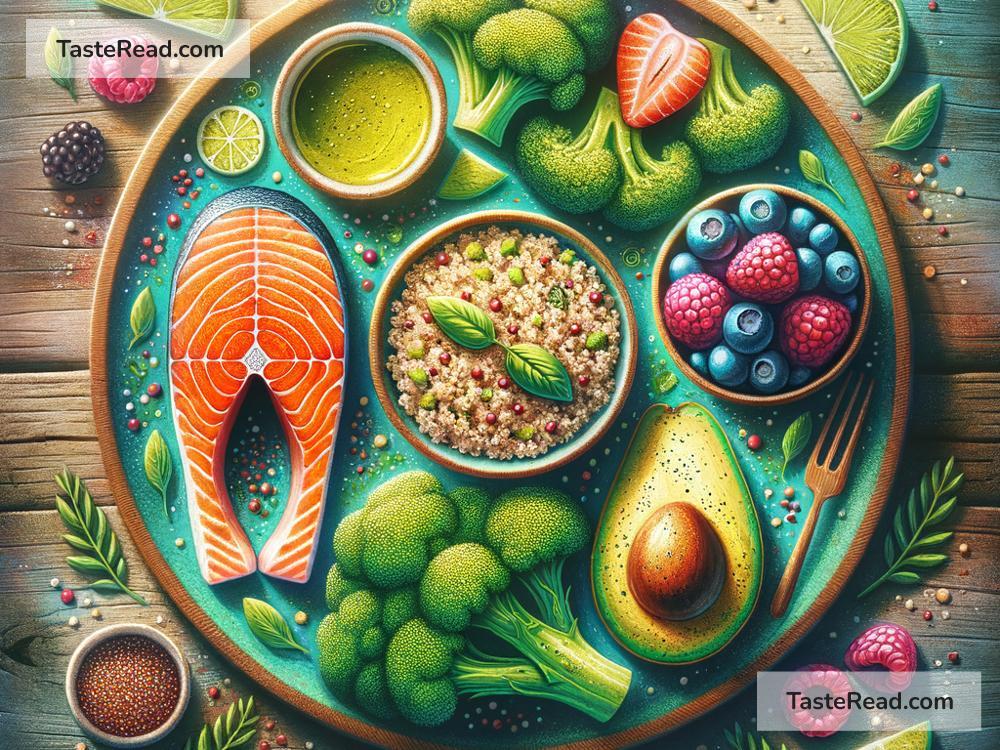The Benefits of a Balanced Diet for Hypothalamus Health: Supporting Appetite Regulation
Do you ever wonder why you’re hungry at certain times or how your body decides when to stop eating? The answer lies in your brain, specifically in a tiny yet powerful part called the hypothalamus. This almond-shaped area plays a big role in keeping us healthy by controlling things like appetite, metabolism, and even body temperature. But did you know that what you eat can directly affect how your hypothalamus works? That’s right—a balanced diet can help keep your hypothalamus healthy, making it easier to regulate your appetite and maintain your overall health.
In this blog, we’ll explore why the hypothalamus is important and how eating the right foods can support its functions. We’ll also share simple tips to include hypothalamus-friendly foods in your daily life.
What Is the Hypothalamus and Why Is It Important?
The hypothalamus is a small but mighty part of your brain that acts like a command center for many of your body’s processes. One of its major jobs is regulating appetite. It uses hormones and signals to decide whether you’re hungry or full, helping you avoid overeating or undereating.
The hypothalamus also communicates with other parts of your body, like the stomach, fat cells, and even your pancreas, to keep everything balanced. It plays a key role in controlling your metabolism and energy levels, making it essential for maintaining a healthy weight.
When your hypothalamus isn’t functioning well, it can lead to problems like overeating, weight gain, or even metabolic disorders like diabetes. That’s why taking care of this tiny brain region is so important, and the best way to do that is through a balanced diet.
How Does a Balanced Diet Affect the Hypothalamus?
Your hypothalamus relies on nutrients from the food you eat to do its job. If your diet is full of processed foods, sugary snacks, and unhealthy fats, it can cause inflammation and oxidative stress in your hypothalamus. This makes it harder for the hypothalamus to process hunger and fullness signals properly.
On the other hand, eating a balanced diet full of nutrient-rich foods can nourish the hypothalamus, helping it stay healthy and work efficiently. Key nutrients like vitamins, minerals, healthy fats, and antioxidants give your hypothalamus the support it needs to regulate your appetite.
Here’s an example: Omega-3 fatty acids, found in foods like salmon, walnuts, and flaxseeds, help reduce inflammation in the brain, including the hypothalamus. Similarly, antioxidants in fruits and vegetables protect the hypothalamus from oxidative stress, which is caused by harmful molecules called free radicals.
The Role of Macronutrients in Hypothalamus Health
A balanced diet includes three main macronutrients: carbohydrates, proteins, and fats. Each plays its own role in keeping the hypothalamus healthy:
-
Carbohydrates: When you eat complex carbohydrates like whole grains, sweet potatoes, and legumes, your body gets a steady source of glucose, the brain’s main energy source. The hypothalamus needs this energy to function well and send accurate hunger signals.
-
Proteins: Protein-rich foods like eggs, lean meat, tofu, and beans contain amino acids that help produce hormones like leptin and ghrelin. These hormones tell your hypothalamus when you’re hungry and when you’re full.
-
Healthy Fats: Including foods like avocados, nuts, seeds, and olive oil in your diet provides the hypothalamus with essential fatty acids that reduce inflammation and promote its overall health.
Other Important Nutrients for Hypothalamus Health
In addition to macronutrients, certain vitamins and minerals are particularly beneficial for the hypothalamus.
-
Vitamin D: Found in fatty fish, egg yolks, and fortified dairy products, Vitamin D supports brain health, including the hypothalamus, by reducing inflammation.
-
Magnesium: Foods like spinach, almonds, and dark chocolate are rich in magnesium, which helps the hypothalamus manage stress and regulate its functions.
-
Antioxidants: Bright-colored fruits and vegetables such as berries, carrots, and spinach are loaded with antioxidants that protect the hypothalamus from damage caused by free radicals.
How to Incorporate Hypothalamus-Friendly Foods Into Your Diet
The good news is that supporting your hypothalamus doesn’t require fancy or expensive foods. You can easily create delicious, balanced meals with simple, everyday ingredients. Here are some tips:
- Start your day with a bowl of oatmeal topped with fresh berries and walnuts. This provides healthy carbs, antioxidants, and omega-3s.
- Snack on a handful of almonds or a piece of dark chocolate to give your brain a boost of magnesium.
- Add leafy greens like spinach or kale to your lunch or dinner for their nutrient-dense benefits.
- Choose lean proteins like grilled chicken, fish, or plant-based options like lentils.
- Switch regular cooking oils for healthier options like olive or avocado oil to support brain health.
Takeaways
Your hypothalamus is an unsung hero in your brain, working hard every day to keep your appetite and metabolism balanced. By eating a balanced diet full of whole, nutrient-dense foods, you can give your hypothalamus everything it needs to stay healthy and function properly.
Think of your meals as fuel for your command center. Every bite you take has the power to support your overall health—not just your appetite but also your energy levels, mood, and weight. By making small, healthy changes to your diet, you’re taking an important step toward better hypothalamus health and a happier, healthier you!
So, the next time you sit down to eat, remember that you’re not just feeding your body—you’re feeding your brain too! Choose wisely, and let your food be your medicine.


